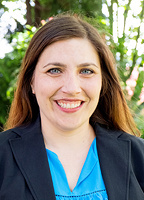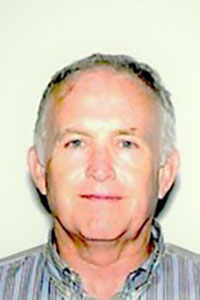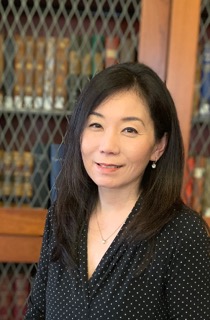
Faculty Affiliates
Fellowship Announcement
Ethics and Technology invite full-time faculty to apply for the second ET Faculty Fellows cohort program for Academic Year 2021-2022. The ET seeks scholars from all academic areas and all backgrounds to contribute to the conversation around the responsible use of digital technology, broadly construed. Ethics and Technology goal of the program is to provide financial, administrative, and content support to faculty members who wish to begin or cultivate a research agenda in that area. Part of the program will include some technical content instruction in digital technology, but no technical background is necessary or expected.
Purpose of Ethics and Technology
Ethics and Technology is a new undertaking of Seattle University, funded by a generous donation from Microsoft. Rapid developments in digital technology bring an abundance of opportunities but also raise challenges related to employment, health care, privacy, trust, safety, inclusiveness, and accountability. Ethics and Technology are engaging community members and elevating the conversation about artificial intelligence, the Internet of Things, cloud computing, and other modern digital technologies. Ethics and Technology are also developing educational resources for companies and non-profit organizations that seek to improve their ability to develop or deploy new technologies in an ethical way that fosters human flourishing. More information about it is available at https://www.seattleu.edu/ethics-and-technology/
Benefits of the Program
- All Fellows will receive a stipend of $3000 for the academic year. Half is distributed in September 2021, and half in June 2022.
- All Fellows will have access to graduate student research support, beginning in January 2022 and continuing through June 2022.
- Fellows will benefit from the feedback, accountability, and encouragement of a research cohort.
- At the conclusion of the academic year, all who complete the program will be named “Faculty Affiliates” of the Ethics and Technology.
- Any Faculty Affiliate has the opportunity to lead workshops sponsored by Ethics and Technology. These workshops are on the responsible use of digital technology, broadly construed, and are designed for diverse types of organizations, including for-profits, nonprofits, and governmental organizations. The leadership of workshops is paid.
Eligibility
Any full-time faculty member at Seattle University can apply to be a Faculty Fellow.
Commitment
- Fellows will attend a meeting once per month, September-June, for a total of 10 meetings. These meetings are planned for a virtual format, pending a change in conditions for meeting. Meetings are scheduled at our mutual convenience and are about two hours.
- Each fellow will be responsible for leading one monthly meeting during the year, in the style of a research workshop. Typically, this includes both a presentation of research ideas and the opportunity to workshop those ideas with colleagues.
- Participation in each monthly meeting is estimated to require an average of 5 hours of preparation.
- Scholars will be expected to submit for publication to a journal of their choice by June 2022 one article of scholarly quality on a topic related to the theme of the responsible use of digital technology, broadly construed.
- Prior to the program (in the summer months), Scholars will be expected to view a series of videos on ethics and digital technology, requiring about 5 hours of viewing.
- Prior to the course (in the summer months), Scholars will be expected to read the book A Human Algorithm: How Artificial Intelligence is Redefining Who We Are by Flynn Coleman. The book will be provided. This book should be thought of as background and to establish a common language and baseline for the cohort. The year-long cohort is not intended to be a book discussion group.
Application and Deadline
Faculty interested in applying to be an ET Fellow should submit an application by Friday, May 28, 2021. A complete application includes a brief research and teaching biography and a statement of interest in the program, including how you expect to benefit from and contribute to the program. This statement may also contain a description of your potential area of research, although this is not required, as it is expected that several cohort members will use the program as a way to initiate a research agenda. The above items may be combined in a single document of no more than one page. Additionally, we request an updated copy of your CV.
Applications should be emailed to Nathan Colaner at colanern@seattleu.edu
Selection Process
A selection committee composed of the ET Oversight Committee, the Executive Director, and the Managing Director will meet to evaluate each application. Faculty fellows will be selected based on the potential to benefit from and contribute to the program, with the additional selection criteria of maintaining the diversity of academic areas. The ideal cohort will have 8-10 faculty representing several schools at Seattle University.
Contact for Additional Questions
Nathan R Colaner, PhD, MBA
Managing Director, Initiative in Ethics and Technology
SEATTLE UNIVERSITY
901 12th Avenue, Seattle, WA 98122-1090
colanern@seattleu.edu | (206) 296-5628 | (206) 296-5628
Faculty Affiliates
-
Caitlin Carlson Ring, PhD, Department of Communication
-

Caitlin Ring Carlson, Ph.D., is an Associate Professor in the Communication Department at Seattle University. She comes to academia with a professional background in Public Relations. She has a Ph.D. in Media Studies from the University of Colorado. Her primary research interests are in media law and policy as they pertain to new media, freedom of expression and social justice. Her current work focuses on hate speech. She is also interested in women’s freedom of expression, including women’s press freedom and women’s media ownership.
Dr. Carlson has been published in leading academic journals such as Communication Law & Policy, the Journal of Media Ethics, and First Amendment Studies. Her first book, “Hate Speech,” will be published by MIT Press in April 2021. Dr. Carlson currently teaches Communication Law, Media Systems, and Professional Communication.
-
Steven Hanks, PhD, Computer Science
-

Steve Hanks is an Instructor in the Computer Science Department at Seattle University. His research and teaching are primarily in the areas of Artificial Intelligence and Data Science. Previous positions include Chief Data Scientist at Whitepages (now Ekata), Principal Research Manager at Microsoft, Group Manager at Amazon, Professor of Computing and Software Systems at University of Washington Tacoma, and Associate Professor of Computer Science at University of Washington Seattle. He earned a Ph.D. degree in Computer Science from Yale University, and an MBA degree from the Wharton School, University of Pennsylvania.
-
Tracy Kosa, PhD, School of Law
-

Dr. Tracy Ann Kosa is currently teaching privacy at Seattle University, conducting research at Stanford University, working in security at Google and serving as the Ombudsman for the AI Ethics Board for Axon. Kosa has previously held a number of privacy leadership roles at Microsoft, the Government of Ontario and related tech agencies, where she has helped multiple departments and teams pioneer measurement and assessment programs across the organizations as key components of corporate-wide privacy functions.
Kosa has been active in technology ethics, privacy, and user trust across healthcare, education, finance and the law enforcement sector for 20 years. She specializes in interdisciplinary approaches developing models, systems and processes to capture human values for computational purposes. She has specialized in privacy programs, technical solution design, privacy product development, incident response and breach notification with a focus on automation.
Kosa has been awarded degrees in computer science (Ph.D.), ethics (MA), public policy (MA) and political science (Hons.BA).
-
Kelly McBroom, RN, PhD, ARNP, CNM College of Nursing
-

Kelly McBroom is an Associate professor in the College of Nursing. She practiced full scope midwifery for 25 years, delivering babies in home, birth center, and hospital settings. Kelly has taught at SU in various capacities as an adjunct, instructor, and professor for the last 10 years. She has practiced and taught widely in Central America and the Caribbean as well, with dissertation research on Pregnancy and Zika in Puerto Rico. Her research interests include global health, infectious disease, reproductive health, and maternal resilience. She is currently examining pedagogical approaches to clinical education in the time of COVID, and is researching a book on Virtual Simulation for the teaching of clinical skills at the graduate level. Her work has been published in Obstetrics and Gynecology, and most recently in the Journal of Midwifery and Women's Health.
-
Kumhee Ro, RN, DNP, ARNP, FNP-BC College of Nursing
-

Kumhee Ro is an Assistant Professor in the College of Nursing. As a nationally board-certified Family Nurse Practitioner, she has extensive experience caring for patients in a broad range of clinical settings including long-term care facilities, primary health care, women's health care and inpatient acute care. Her current practice is in the Department of Emergency Medicine at the University of Washington Medical Center. Her program of scholarship is focused on interventions to promote health equity for vulnerable, marginalized, stigmatized and underserved ethnic/racial minority populations. Dr. Ro is particularly interested in identifying factors supporting diversity within the health care workforce as a means of promoting care and outcomes for traditionally underserved ethnic/racial minority populations. She is currently working with an inter-professional research team to examine characteristics and potential evaluation strategies for diversity-promoting K-12 healthcare career pipeline programs in the Puget Sound region. Her work has been published in journals including Journal of Professional Nursing, Nurse Educator, Journal of the Nurse Practitioners and Advanced Emergency Nursing Journal.
-
Neria Sebastien, EdD, College of Education
-

Neria Sebastien is an Assistant Professor of Special Education, in the College of Education at Seattle University. He has a Doctoral degree in Educational Leadership from Concordia University. He also earned a master’s degree in Special Education from Fordham University and an undergraduate degree in Elementary Education from The City University of New York’s Brooklyn College.
Before joining the teacher education faculty at Seattle University in 2019, he was an Assistant Professor of Special Education, Director of Online Learning, and Co-Director of the Center for Education Equity and Diversity (CEED) at Walla Walla University. His combined K-12 teaching experience spans twelve years in Saint Lucia, New York City, Hawaii, and Oregon.
-
Eric Severson, PhD, Department of Philosophy
-

Eric Severson is a philosopher specializing in the work of Emmanuel Levinas. He is the author of Before Ethics (Kendall-Hunt, 2021), Levinas's Philosophy of Time (Duquesne University Press, 2013) and Scandalous Obligation (Beacon Hill Press, 2011), and editor of eight other books on philosophy, psychology, ethics, theology and the philosophy of religion. He lives in Kenmore, Washington and teaches philosophy at Seattle University.
-
LeighAnne Thompson, School of Law
-
.jpg)
LeighAnne Thompson teaches Advanced Legal Research, Advanced Research for Scholarly Writing, Law Practice Technology and Ethics, and she lectures for a variety of other classes and programs. Prior to joining the faculty, Ms. Thompson practiced Employee Benefits and ERISA law, most recently at Kirkland & Ellis, LLP. She also served as in-house counsel to a multi-employer healthcare organization. She received a Public Interest Law Initiative Fellowship in 2010 to provide legal services to not-for-profit organizations. She is a member of the Washington State Bar Association, American Association of Law Libraries, and Law Librarians of Puget Sound.